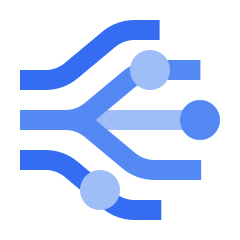智能体工具¶
查看以下你可以与 ADK 智能体一起使用的预构建工具:
Gemini 工具¶
Google Cloud 工具¶

Apigee API Hub
将 Apigee API Hub 中的任何文档化 API 转换为工具
API 注册表
作为 MCP 工具动态连接 Google Cloud 服务

应用集成
使用集成连接器将你的智能体连接到企业应用

BigQuery 智能体分析
大规模分析和调试智能体行为

BigQuery 工具
连接 BigQuery 以检索数据并执行分析

Bigtable 工具
与 Bigtable 交互以检索数据并执行 SQL

GKE 代码执行器
在安全且可扩展的 GKE 沙箱环境中运行 AI 生成的代码

Spanner 工具
与 Spanner 交互以检索数据、搜索和执行 SQL

数据库 MCP 工具箱
将超过 30 种不同数据源连接到你的智能体

Vertex AI RAG 引擎
使用 Vertex AI RAG 引擎执行私有数据检索

Vertex AI 搜索
在 Vertex AI 搜索中搜索你私有的、已配置的数据存储
第三方工具¶

Asana
管理项目、任务和目标以实现团队协作

Atlassian
管理问题、搜索页面并更新团队内容

Cartesia
生成语音、本地化声音并创建音频内容

Chroma
使用语义向量搜索存储和检索信息

Daytona
在安全沙箱中执行代码、运行 shell 命令并管理文件

ElevenLabs
生成语音、克隆声音、转录音频并创建音效

GitHub
分析代码、管理问题和 PR,并自动化工作流程

GitLab
执行语义代码搜索、检查流水线、管理合并请求

Hugging Face
访问模型、数据集、研究论文和 AI 工具

Linear
管理问题、跟踪项目并简化开发

n8n
触发自动化工作流、连接应用程序并处理数据

Notion
搜索工作区、创建页面以及管理任务和数据库

Postman
管理 API 集合、工作区并生成客户端代码

Paypal
管理支付、发送发票并处理订阅

Qdrant
使用语义向量搜索存储和检索信息

Stripe
管理支付、客户、订阅和发票
将预构建工具与 ADK 智能体一起使用¶
按照以下通用步骤将工具包含在你的 ADK 智能体中:
- 导入: 从工具模块导入所需的工具。在 Python 中是
agents.tools, TypeScript 中是@google/adk, Go 中是google.golang.org/adk/tool,或 Java 中的com.google.adk.tools。 - 配置: 初始化工具,提供所需的参数(如果有)。
- 注册: 将初始化的工具添加到你的智能体的 tools 列表中。
添加到智能体后,智能体可以根据用户提示和其指令决定使用该工具。 当智能体调用该工具时,框架会处理该工具的执行。
注意:使用多个工具的限制
某些 ADK 工具不能在同一个智能体中与其他工具一起使用。 有关这些限制的工具的更多信息,请参见 ADK 工具限制。
为智能体构建工具¶
如果以上工具不能满足你的需求,你可以使用以下指南为你的 ADK 工作流构建工具:
- 函数工具: 为你的特定 ADK 智能体需求构建自定义工具。
- MCP 工具: 将 MCP 服务器连接为你的 ADK 智能体的工具。
- OpenAPI 集成: 直接从 OpenAPI 规范生成可调用工具。

